
(Photo: Jonathan Maus/BikePortland)
Shawn Small, founder and engineer at Portland-based carbon fiber repair shop Ruckus Composites, wants to shake up the world of bicycle science. Right now, he says, this field relies a lot on anecdotal evidence, and data that is collected is difficult for average bike consumers to understand.
Small thinks bike science has the potential to grow into a well-respected field and he’s taken a big step toward making that happen: Ruckus Composites has launched a dedicated bicycle science program that utilizes engineering, chemistry and physics to look at fields relevant to the bicycling world, like sustainability, maintenance and repair.
The hope, Small says, is that scientists, bicycle technicians and consumers will all benefit from the research this program will produce.
“We’re trying to make people more aware of the products they’re using, whether it’s from a safety perspective or just trying to dispel some of the pointless myths around cycling technology,” he tells me.
Advertisement
Small, who launched Ruckus in 2008 and has since repaired 7,000 carbon frames, has written articles for BikePortland that dig into the ins-and-outs of bike science. He wrote about everything from traffic signal sensors to how trigonometry plays a role in Paralympian bike racing.
In order to better communicate this information, Small has hired a staff science writer to beef up research Ruckus produces. One recent paper authored by Small and Heather Wilson is titled, Ultrasonic Testing of Carbon Fiber Bicycles. It presents several cases, “where phased array ultrasonic testing (PAUT) is used to detect non-visible damage to CFRP [Carbon Fiber Reinforced Plastic] bicycles.” This article — which ranked in the top ten most viewed at a recent conference — should help designers and engineers make better carbon fiber bikes.
Small says carbon fiber bikes aren’t just for racing anymore. As the price of carbon fiber bikes decreases, the market has grown significantly in the past decade, so it’s all the more important that these bikes are made safely and people know how they work. There’s a lot of changing information, especially in the field of carbon fiber e-bikes, and Small wants Ruckus Composites to get ahead of the curve.
The bike science program is going to delve into the nitty-gritty of carbon fiber technology, analyzing things like drop impact testing of carbon frames, galvanic corrosion testing, exploring epoxy and carbon fiber materials and using a torque wrench for bike repair.
One of Small’s goals is to boost the durability of carbon fiber bikes. Making bikes more durable means they’ll last longer and have less environmental impact. Another recent study out of Ruckus says getting a carbon fiber framed repaired produces significantly less greenhouse gas emissions than replacing the bike.
“Products that last long-term are important to fighting climate change. How does repair fit into consumer culture?” Small says. “For us this is showing our intentions about what we want to be putting out and standing behind as a company.”


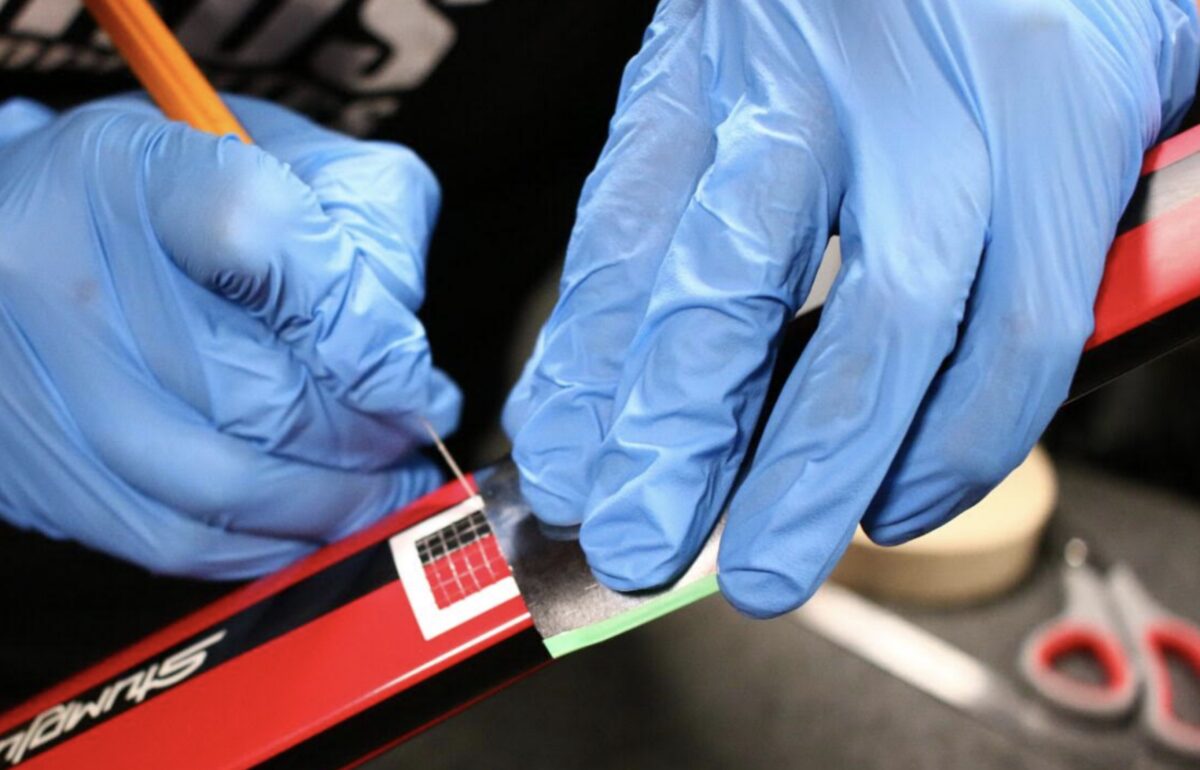
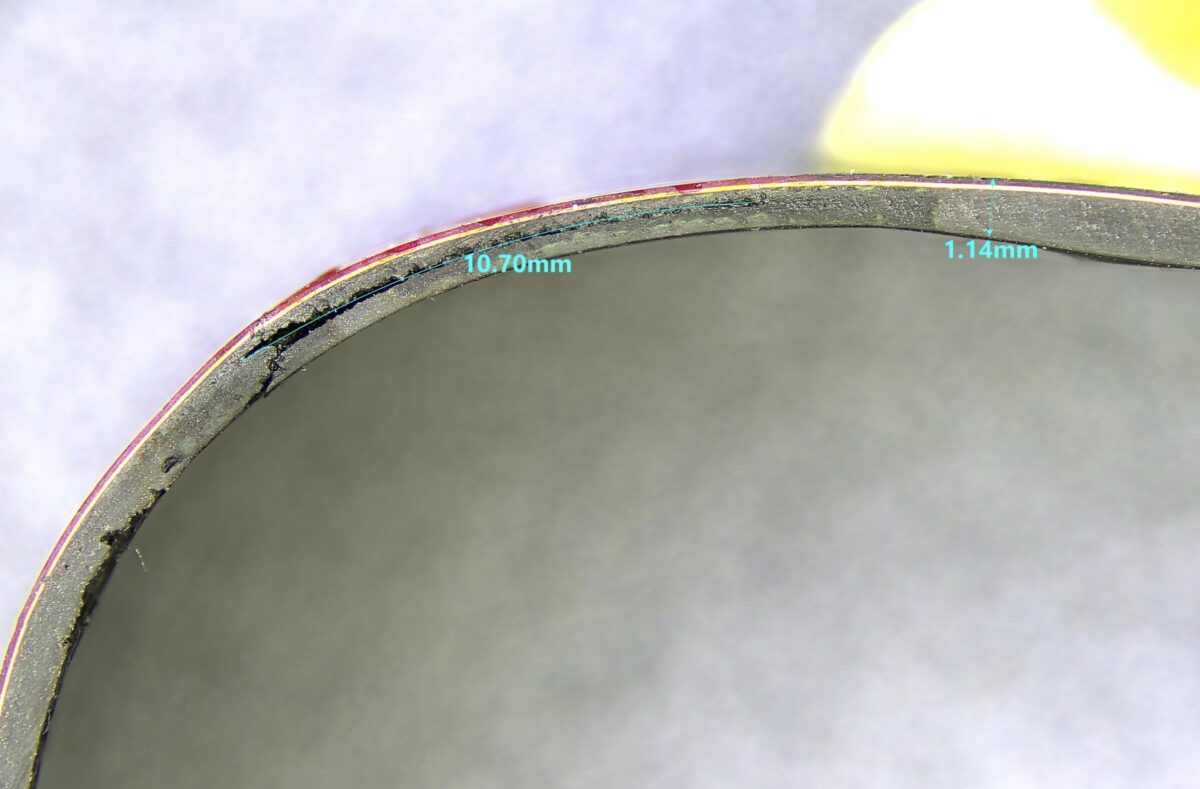
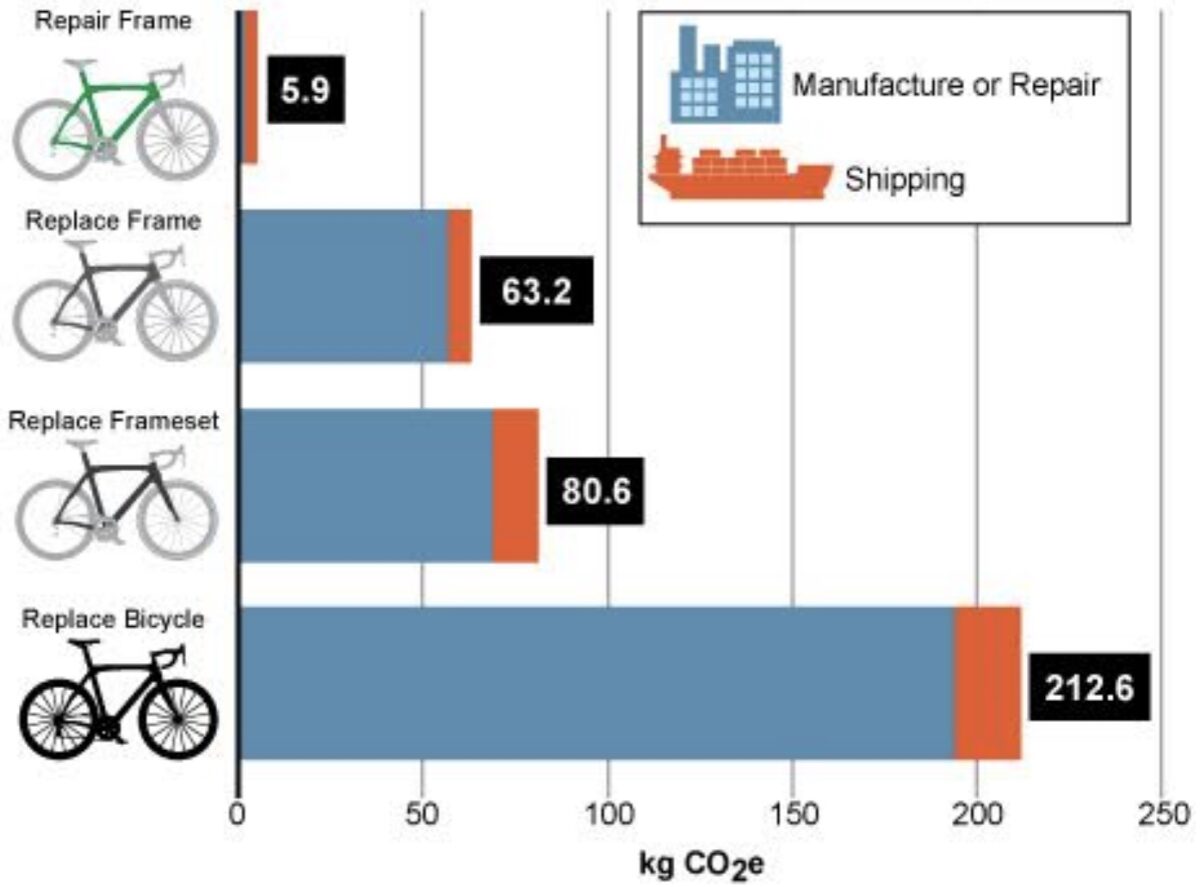
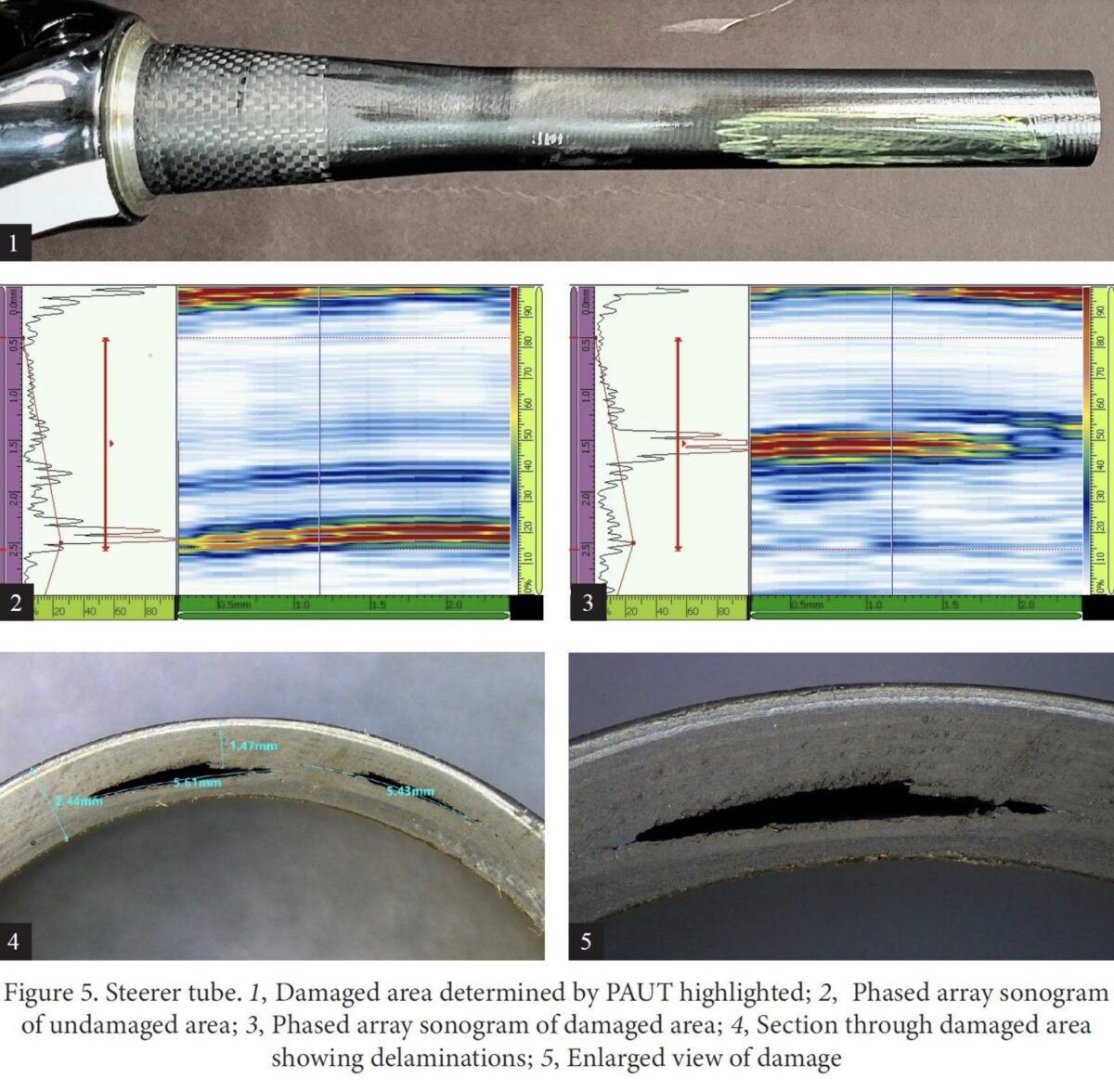

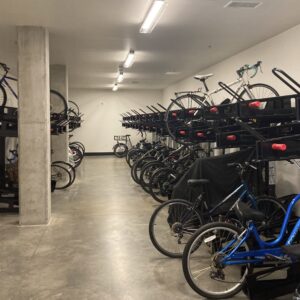
Thanks for reading.
BikePortland has served this community with independent community journalism since 2005. We rely on subscriptions from readers like you to survive. Your financial support is vital in keeping this valuable resource alive and well.
Please subscribe today to strengthen and expand our work.
Ruckus is awesome. Looking forward to seeing their work.
“What is the environmental impact of carbon fiber? … There’s no doubt that carbon fiber costs a ton of energy to produce. In fact, it’s about 14 times as energy-intensive as producing steel, and the creation process spews out a significant amount of greenhouse gases.”
Funny how people on this site get all worked up about a new bridge spanning the Columbia river (which would reap massive economic benefits for the entire country and provide improved bike routes) saying it is bad for the environment but then have no problem with carbon fiber bicycles. I sense a lot hypocrisy here.
I don’t see this as hypocritical: the I-5 bridge replacement and freeway expansions indicate a current and future commitment to maintaining car usage and providing space for more drivers to get on the road. Not only is car manufacturing very carbon-heavy — the use of combustion engine vehicles means consistent greenhouse gas emissions every time you get in the car. Unlike with a bike (made from any material), there is no way to offset the carbon footprint of your combustion engine car by driving it.
Not only that, but Ruckus Composites is providing repairs for bikes that already exist. This means less carbon fiber ending up in the landfill and less manufacturing as well.
The agencies working on a bridge design give estimates* of the cost of the project. They never say anything about either the CO² released in the construction or the huge amount of traffic delay that occurs in the years it will take to complete. That’s guaranteed upfront delay and pollution for a notional future benefit.
*cost estimates are routinely exceeded by 25% and can go much higher.
Are you feigning environmental concern by sharing that quote, Rudy? How much energy and emissions go into creating just that one bridge, and how many carbon fiber bicycle frames could be made with those same amounts? I ask that rhetorically, but also curious about what is the answer. Seems to me you have to project a lot to see the hypocrisy you’ve claimed.
It’s very “Portland” to think cars are EVIL and carbon fiber bikes are COOL. Many of us just read the headlines without understanding the issues and like most things it’s not as simple as it seems. I think Rudy brings up a good point that some of us don’t realize our own biases. Me included.
It’s very Portland to be a retrogrouch. In fact, I’ve had two bike shops refuse to work on my carbon fiber commuter (my cost of purchase was $0 due to Trek’s generous lifetime replacement warranty for an alloy bike that broke).
Strange. On what basis did they refuse to work on it?
First shop was reluctant to work on my carbon fiber bike due to its “internal cable routing” but I felt like that was just an excuse. Second shop stated that they do not work on carbon fiber bikes full stop (a bit of an “alternative” shop but still…).
Back in the day, we didn’t even have retrogrouches. You kids now-a-days have it easy
Are we really comparing a 20lb carbon fiber bike to a 5,000lb steel vehicle (most people don’t buy cars anymore, but rather SUVs and trucks) that run on fossil fuels? Even if the above quote is correct and carbon fiber is 14 times the impact by weight, the vehicle would still be 18x worse up front, and continue to burn fossil fuels for decades.
Citation please!
Here is mine:
Total embedded CO2e to manufacture a Specialized carbon bike — 123 kg
Total embedded CO2e to manufacture a Specialized alloy bike — 315 kg
https://dukespace.lib.duke.edu/dspace/bitstream/handle/10161/8483/Duke_MP_Published.pdf
Total embedded CO2e to manufacture a generic steel bike — 240 kg
https://www.washingtonpost.com/national/health-science/are-bikes-environmentally-friendlier-than-cars-green-lantern-runs-the-numbers/2011/08/22/gIQAYDBknJ_story.html
http://seeds4green.org/sites/default/files/Pietzo_LCAwhitepaper.pdf
Good article on carbon fiber.
https://amp.theguardian.com/sustainable-business/2017/mar/22/carbon-fibre-wonder-material-dirty-secret
so…still no citation for your “statistic”.
Hmm… building a bridge that allows for and encourages the use of a vehicle that, through its use, has carbon emissions vs. manufacturing a bike that admittedly has a lot of carbon emissions through its production but does not have carbon emissions from use… Continual carbon emissions vs. one time carbon emissions. Gee, I wonder which one is worse. If you think that this is hypocrisy, then you clearly don’t understand the difference in scale here.
It isn’t just the energy that goes into carbon fiber manufacturing – it’s also that carbon fiber is not recyclable. But given all the much greater anthropogenic threats to the environment, I think that in the grand scheme of things, carbon fiber bikes pose a de minimis environmental threat. Let’s keep our eyes on the real target, no?
That’s simply not the case. I have a laptop and bike components made with recycled carbon fiber. Recent advances also allow the production of high modulus recycled composites:
https://www.compositesworld.com/articles/the-state-of-recycled-carbon-fiber
That’s great you can buy components made of recycled carbon fiber now. What company makes them?
Dell made my laptop case and SKS made my bottle cage.
How much recycled carbon fiber by weight? I suspect that the products you are using are using excess carbon fiber from manufacturing, which is considered “recycled”, but is not a true end of life type of recycling. We always have excess in our layup processes. This material is a lot easier to use in consumer products, as it has not been impregnated yet.
The pyrolosis process noted above sounds labor-intensive. The heating process causes de-lamination, but all of those pieces would need to be collected and sorted to be usable. Oh, and it has to be in a full nitrogen environment to prevent oxidation. I see a lot of scaling issues here.
https://www.boeing.com/company/about-bca/washington/boeing-wins-top-prize-for-recycling-100-of-its-carbon-fiber-waste.page
The chemical processes described are not pyrolosis [sic]. Delamination without destroying the tensile strength of extracted fibers is the entire point of recycling.
This is a direct quote from your link:
As the discussion veers towards footprint, it would be cool if a company such as Ruckus, Breadwinner, Ti Cycles Fabrications (not to focus completely on carbon and provide Portland-centric examples) had a mechanism to modify a frame. Thus, buy a frame once and adjust for boost, super boost, tapered headsets, or whatever future “efficiencies” the industry introduces. I realize this would change the ride of a bike and there are limitations to what can be done (such as completely destroying tensile strength) but such modifications would potential expand the life of a frame.
Thank you Ruckus putting yourselves out there to communicate the science!
Dr. Small rocks.
Why would anyone want to ride a carbon fiber bicycle when there are so many great steel frames available?
The environmental impact is just part of the story. Carbon fiber can fail catastrophically without warning. Google “carbon fiber frame failure” and “carbon fiber lifespan.”
Carbon requires considerable pampering to avoid damage. Damage that often goes unnoticed…until it’s too late.